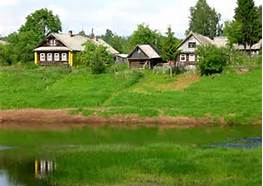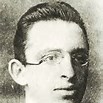
Sevastapol
I’ve always found that when I want to understand something that’s happening in Russia, it helps to hit the books. No, not thick legal tomes on international law and treaty obligations, but the old books, preferably ones the Russians read. As a result, this last week, after gorging myself on The New York Times and CNN, I turned away from following up-to-the-minute accounts of the crisis in the Crimea and went downstairs to take a copy of Tales of Sevastopol by Leo Tolstoy off my bedroom shelf. My copy is a lovely leather-bound volume with black-and-white pen and ink sketches published in Moscow in 1950 by the Soviet Foreign Languages Publishing House. I bought it in an antique books store in New Milford, Connecticut which no longer exists.
Tales of Sevastopol, for my taste, is not Tolstoy’s best book. There is no love affair between Natasha and Prince Andrei to keep you on the edge of your seat. In fact, the entire book is about men at war and reads like many of the passages some of us may have skipped in War and Peace, the ones where Tolstoy describes the life of the simple soldier, his hope and fear, his courage under fire, his willingness to die, that peculiarly pure Russian fatalism that Tolstoy so much admired.
Tolstoy himself served as an artillery officer on the bastions of Sevastopol during the Crimean War (1854 – 1855) and so we must assume that he knew what he was talking about. The Russians, for eleven months, held these bastions under hideous conditions against a European coalition of English, French, Sardinian and Turkish troops until the city, broken and bloodied, had to be abandoned on September 11th, 1855.
Being ganged up on (as they saw it) and their subsequent defeat in the Crimean War came as an unpleasant shock to the Russian nation in 1854 and 1855 and the bruising defense of Sevastopol has passed down into local and national legend. Legends are by their nature exaggerated, of course, exaggerated to prove a point or to assure a people of their own honor and nobility. What is not a legend is that Russia, as a result of her defeat in the Crimea in 1855, saw a decline in her position in southeastern Europe, the Near East and the world at large.
Vladimir Putin, a man who equates himself with his nation’s position in the world, knows his Russian history better than I do and I have no doubt Tales of Sevastopol is on his shelf as well as mine. So when I heard Barack Obama, say on television the other night, that Putin is consulting different lawyers than he is, I felt like he was missing the point. Putin is not consulting his lawyers. Putin is consulting the ghosts of Russia’s past.
Putin is not the only one. Even if he were to wake up tomorrow morning and decide to give what is fast starting to look like a coalition against Russia what they want, I don’t think his country would let him. They too know their history. Many of them feel as he does that Russia has been treated by the West like a poor relation, that Russia’s particular virtues have been ignored or denigrated. They don’t want him to back down. To back down would be to court domestic political emasculation. To back down would negate everything Putin has built himself and his country up to be.
For more about Sevastapol, read Andrew Higgins article from the March 7th New York Times “Sevastapol Journal: Steeped in its Bloody History, Again Embracing Resistance”





Since the vast majority of the people living in Crimea and much of Eastern Ukraine are indeed Russians ethnically and in language – the best solution would be the probable one, of that area being re-incorporated into Russia proper and the remaining 2/3 of Ukraine would stay Ukrainian speaking separate entity.
The Europeans are often in contention with the argument who does a territory belong to? is it to the historical entity maybe even hundreds of years ago? or to the grand children and great grandchildren or the occupiers who took advantage of being allowed to move in..
My motherland of Latvia has had similar situations, tho I hope Mr Putin doesn’t try with the Baltics to reinstate Russian control over that area – tho there were hundreds of years of Imperial and then later Soviet Russian rule and still a large(maybe 25-30%) non-Latvian population who would love to go back to Russian rule and Russian language use. At least with Ukraine they are relatively related ethnically and linguistically…whereas there is no such bond with the Baltics….
I love how you return to Tolstoy to get a grasp on this situation. We might think that people from other parts of the world might read our Thoreau or Mark Twain to better understand our struggles.
A brilliant move indeed to pull out Tolstoy. It gives me better insight into this new emergence of “Russian mentality.”
Now the question remains: How do we proceed? What do we do or not do?
Thanks for this.
Thank goodness you’re here to explain what’s going on in Putin’s mind. Please send your blog to the White House!! Nicely done, as usual, Linda!